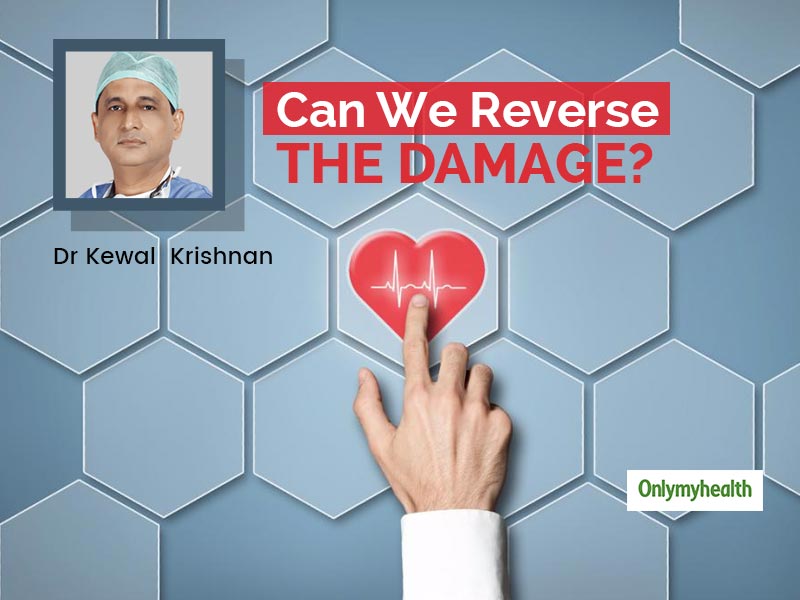
Heart failure occurs when the heart faces difficulties in pumping blood sufficiently. A weak heart means lesser blood flow to the cells, causing a grave discomfort including shortness of breath, fatigue, and heart failure in extreme cases. The question is that is it possible to find a cure to damage to the heart? Dr Kewal Krishnan, Director Heart Transplant & LVAD Program Max Super Speciality Hospital, Saket explains how one can make sure that their heart remains healthy:
Table of Content:-

At what stage should one consult a doctor for heart failure?
A patient should consult a doctor when they start experiencing chest pains that are sudden, severe, unexpected and come with shortness of breath, sweating, nausea, or weakness. One should also monitor their heart rhythm and be aware of abnormally fast heartbeats, especially if you are short of breath that it is not relieved by rest. Sudden weakness or inability to move your arms or legs, severe headaches and sudden fainting spells are also major warning signs.
Also Read: World Heart Day 2020: How Tele-Cardiology Can Help in Pandemic Times
How can heart failure be treated across stages, and the treatment options?
Heart failure develops over time. As the pumping becomes weaker, the body tries to compensate for this with hormonal and other mechanisms. The New York Heart Association classifies this into 4 stages (NYHA Class 1-4), and the treatment varies at each stage. Once a patient has progressed to the next stage, it is almost impossible to reversed. While in the initial stages of heart failure, lifestyle changes along with medication can help manage the condition, in case of advanced heart failure, treatment options such an LVAD procedure or a heart transplant along with therapy are necessary for the patient. LVAD (left ventricular assist device) helps the left ventricle (main pumping chamber of the heart) pump blood to the rest of the body. It is a feasible and safe option for management of the condition.
VIDEO: Tips To Keep Your Heart Healthy:
Is LVAD a more lucrative option for patients with advanced heart failure compared to a heart transplant? Please explain.
An LVAD is a more safe and accessible option for patients with advanced heart failure. And dueto persistent shortage of donors, LVADs can be used as both bridge to transplant and as destination therapy.An LVAD also requires fewer consultations post treatment compared to a heart transplant. Further, a study conducted by the NCBI has shown that there are no differences between a heart transplant and LVAD for patients with regards to late mortality. The two-year outcome of an LVAD is comparable to that of a heart transplant.
Also Read: Is There An Increased Risk Of Heart Failure During The Pandemic? Know What This Expert Has To Say
Are patients above 65yrs advised to get an LVAD?

As per guidelines patients above 65 years are Heart Transplant is not offered due to effect on kidney immunosuppressant. Hence LVAD is a viable option for such group of patients. An LVAD device helps a patient lead a more active life. It becomes a new way of life, a “new normal”. While it may take some time to get used to having an LVAD, it also improves the patient’s strength to participate in activities they were not able to previously. Post-treatment, a patient must follow the below-mentioned precautions:
- Monitor your weight
- Eat a healthy and well-balanced diet
- Lead an active life
- Avoid stress
- Get plenty of sleep
- Seek medical consultation regularly and be on the lookout for symptoms
Read more articles on Heart Health
Also watch this video
Read Next
Does Your Heart Beat, Race Or Slow Sown Suddenly? Check Out The Possible Causes And Advices
How we keep this article up to date:
We work with experts and keep a close eye on the latest in health and wellness. Whenever there is a new research or helpful information, we update our articles with accurate and useful advice.
Current Version
